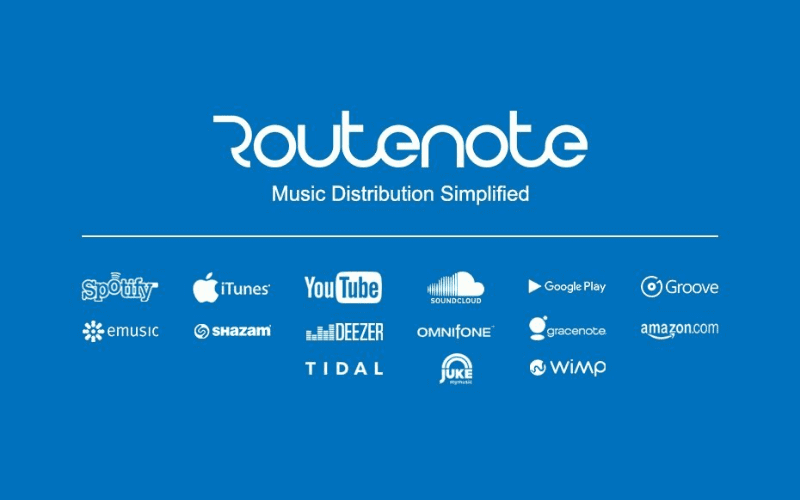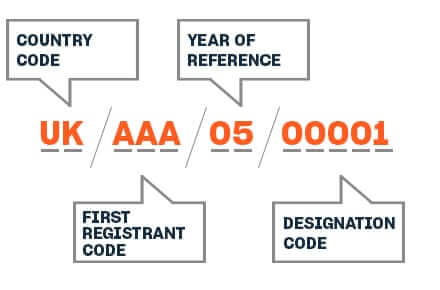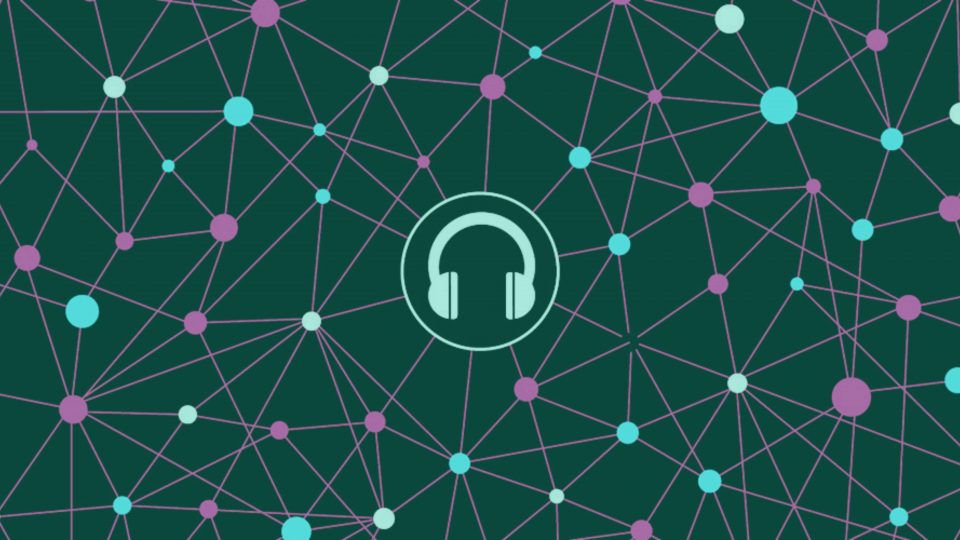What is an ISRC Code? How You Can Get ISRC Codes For Free
Are you preparing your first release for distribution? Congratuations! That’ll explain why you’re asking about ISRC codes on the internet.
But what is an ISRC code? When music is sold commercially it always needs an ISRC code. In fact, having an ISRC code on your track is the most important thing to consider. If you’re hoping that people will buy your song or stream it, you (as the rights holder) are in charge of organizing an ISRC code for your release.
That’s only partly true. If you use a digital distributor like RouteNote then they’ll organize an ISRC code for your song.

What is an ISRC Code?
ISRC codes (which stands for International Standard Recording Code) are alphanumeric codes made up of 12 characters. One ISRC code is assigned to a single piece of music that is on its way to commercial release.
An ISRC code gives the rights holder, whether a bedroom producer or Sony Records, the ability to identify and monitor the life of the track in question.
For example, an ISRC code will allow you to see exactly where your song is being played and how often it’s being played too. As well as location, ISRC codes also allow you to track the sales/streams of your song too.
Digital music distributors and street retailers distribute or sell your song if it doesn’t have an ISRC code.
An ISRC code is embedded into the sound recordings of your song. That means it’s encoded into the sound recording of your song itself.
This is how we can track the life of our music – because the ISRC code becomes a part of the song if you will. Whether your song is played through a sound system or a Radio DJ plays it on the air, it’s an ISRC code that lets us track what our song is doing. Broadcasters and streaming services like Spotify can read the metadata attached to your song.
Every song you release commercially needs a unique ISRC encoded into it. If you have an EP coming out with 4 or five tracks, you’ll need 4 or 5 individual ISRC codes respectively. This is so each track can be identified.
The code allows any concerned bodies, from distributors to broadcasters, to do their jobs correctly.
Oh, and ISRC codes also allow you to get paid!
Where to Find ISRC Codes
There are actually two ways of getting an ISRC code.
You can get in touch with your national ISRC agency or the IFPI (which is the international ISRC agency).
ISRC agencies are the bodies responsible for giving rights holders ISRC codes and maintaining the ISRC system itself too. You can call them or email them, either your national ISRC agency or the IFPI. They’ll advise you about the best way for you to get your ISRC codes.
There is a national ISRC agency for most countries. But if there isn’t one in your country you can rest assured that the international ISRC agency will help you.
PPL (which stands for Phonographic Performance Limited) is the UK’s national ISRC agency.
The RIAA (Recording Industry Association of America) is the national ISRC agency for America.
An option that will save you time and probably a barrel of effort, though, is to get your ISRC codes from your distributor like RouteNote. Should you use a music distributor, ISRC codes will be assigned to your music automatically when you upload your tracks to prepare for distribution.
A digital distributor gives you the choice between using your own ISRC codes or generating new ones via their service. If you’ve already got ISRC codes via your national agency, you can still use those.
What’s The Cost of ISRC Codes?
The price of your ISRC codes will depend on your agency and country.
Your national agency may ask you if you’d like to become a registrant. What does this mean, exactly? Being a registrant allows you to generate your own codes as and when you need them for a release.
However, RouteNote provide you with ISRC codes for free!
How to Create an ISRC Code
If you would like to use your own ISRC codes, let’s talk about how you can create them.
ISRC codes follow an explicit structure, and ISRC codes always have 12 characters. Collectively, the characters represent basic information that links the sound recording back to you, the rights holder, and the details of its release too.

Here’s an example of an ISRC code: GBMXD2200004
GB – represents the country (Great Britain).
MXD – these letters identify you as the rights holder. It’s a unique code for you alone, given to you by your ISRC agency.
22 – the last two digits of the year of release (2022).
00004 – these numbers are created by you, the rights holder. Phonographic Performance Limited (PPL) recommends basing these last 5 digits on the tracklisting/release order.
So, ‘00001’ would be your first track, ‘00002’ your second track, and so on.
You’ll find a plethora of royalty-free sounds to use in your music that you can distribute through RouteNote.
The sampling revolution has risen in popularity and shaped music since the early 1970s. Sample culture continues to transform how millions of artists and producers do their thing in DAWs.
You too can break conventional norms, challenge the status quo, and open Pandora’s box of sound design.
Mixxed works with a growing number of sample labels and contributors to provide you with an affordable sample subscription service that’s more accessible than any before.
You’ll have access to our growing catalogue of loops, one-shots and sound effects that you can browse, download and keep forever for less than $3 a month.
Sign up today to find your sound!
